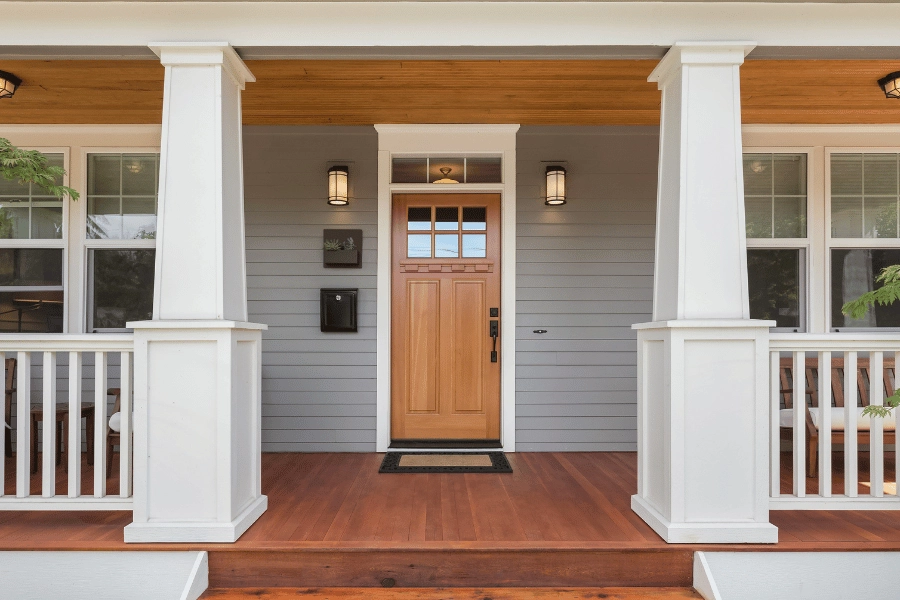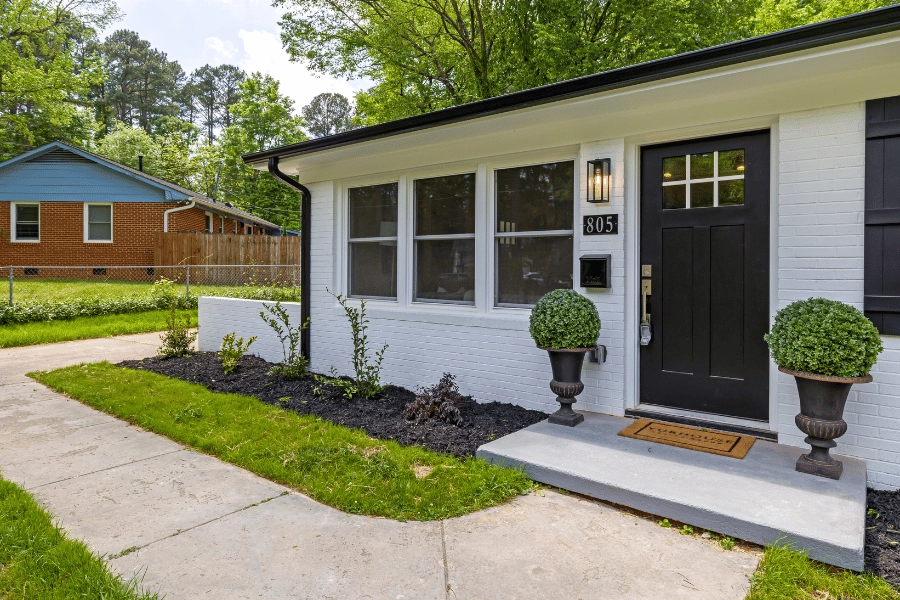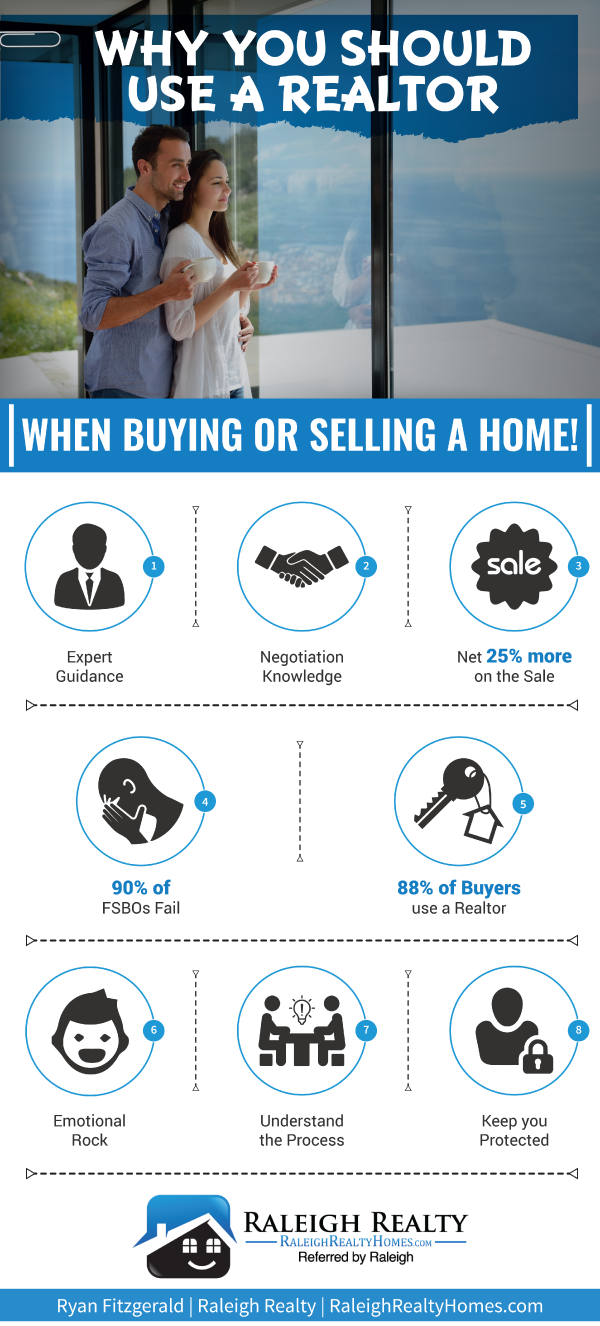Can You Sell a House With a Mortgage?
Are you considering selling your home but still have a mortgage? Here is everything homeowners need to know about selling a home with an existing mortgage.
If you are a homeowner in Raleigh considering selling your property, you may wonder: "Can I sell my house if I still have a mortgage?" The short answer is absolutely yes, and you are not alone in having this question.
In fact, the vast majority of home sales involve properties with existing mortgages. Understanding the process can help you navigate your sale with confidence and make informed decisions about your next steps.
Statistics show that 74% of all homebuyers use financing, meaning most sellers are paying off their loans at closing. This common misconception that you can't sell with an outstanding mortgage often stems from confusion about how the home-selling process actually works.
Many homeowners assume they need to completely pay off their loan before they can transfer ownership, but this simply is not the case. The reality is that having a mortgage is not only normal but expected in most real estate transactions.
Whether you're looking to upsize to accommodate a growing family, downsize as your children leave home, relocate for a new job opportunity, or simply want to take advantage of Raleigh's competitive housing market, having an existing mortgage should not hold you back from putting your home up for sale.
The key is having accurate information and working with real estate professionals who understand both the mortgage payoff process and the local market. This knowledge will help you navigate your sale with confidence, maximize your proceeds, and transition smoothly to your next chapter.
Check out these top things to know about selling a home with a mortgage.
1. Determine the Right Time to Sell
Market timing can significantly impact your home's sale price and how quickly it sells. In Raleigh's market, spring and early summer traditionally see the highest activity, with families preferring to move before the new school year.
Inventory levels, interest rates, and local economic conditions also play crucial roles. Consider your personal timeline alongside market conditions. If you need to relocate for work or have already found your next home, you may need to sell regardless of optimal market timing.
Consider the reason behind the move, whether it is a buyer or seller market, and if you are able to confidently find another house. Monitor local market trends, including average days on market, price appreciation rates, and inventory levels in your specific neighborhood.
Your mortgage payment history and current interest rate compared to today's rates should also factor into your decision. If you have a significantly lower rate than current market rates, calculate whether the savings from moving justify giving up that favorable financing.
If you are moving in Raleigh, areas like North Hills and Historic Oakwood may have different market dynamics than suburban communities like Holly Springs or Fuquay-Varina.
.png)
2. Determine Your Current Loan Balance and Payoff Amount
Your mortgage payoff amount differs from your current balance shown on monthly statements. Contact your mortgage provider to request an official payoff statement that includes principal balance, accrued interest through a specific date, and any applicable fees.
This document is typically valid for 10-30 days and provides the exact amount needed to satisfy your loan completely. Be aware that the payoff amount includes per diem interest, meaning it increases daily until paid.
Some loans carry prepayment penalties, particularly if you refinanced recently or have a jumbo loan, though these are less common on primary residences. Request information about any penalties, late fees, or processing charges that could affect your final payoff.
If you have multiple loans on the property (such as a first mortgage and HELOC), you'll need payoff statements for each. Keep in mind that some servicers require 48-72 hours to prepare accurate payoff documentation, so request this information early in your selling process.
3. Calculate Your Home's Current Market Value
Accurate pricing is crucial for a successful sale, especially when you need to cover your mortgage payoff. Work with an experienced real estate agent to conduct a Comprehensive Market Analysis (CMA) that examines recent sales, active listings, and pending contracts for comparable properties.
This analysis should consider homes sold within the last three to six months in your immediate area, adjusting for differences in square footage, lot size, condition, and amenities.
Consider unique features of your property such as top-rated schools, downtown accessibility, or recent renovations that could justify premium pricing. Your agent should also factor in current market conditions, seasonal trends, and absorption rates for your price range.

4. Factor in All Selling Costs
Selling costs typically consume 10-15% of your home's sale price, significantly impacting your net proceeds. Real estate commissions usually account for 5-7% of the sale price, split between listing and buyer's agents, but the actual cost depends on multiple factors including location.
Additional costs in North Carolina include the North Carolina excise tax (approximately $2 per $1,000 of sale price), attorney fees for closing ($300-800), title insurance, home inspection repairs, and potential staging or cleaning expenses.
Do not forget to consider preperation costs that went into the home before the sale including minor repairs, fresh paint, and landscaping which can range in price depending on the home's condition.
Consider also the costs of moving, temporary housing if there's a gap between closing dates, and any overlap in mortgage payments if you're buying before selling. In competitive markets, you might also pay for pre-listing inspections or offer buyer incentives, which should factor into your overall cost analysis.
5. Consider Interest and Fees
Your mortgage accrues interest daily, so closing date timing directly affects your payoff amount. If your closing is delayed even by a few days, expect the payoff to increase.
Review your loan documents carefully for any prepayment penalties, which some lenders impose for paying off loans early, particularly within the first two to three years or on investor properties.
Certain loan types, including some VA loans and FHA loans, may have specific requirements or fees associated with early payoff. If you've recently refinanced or taken a cash-out refinance, prepayment penalties are more likely.
If you're considering delaying your closing for any reason, calculate the daily interest cost to understand the financial impact of timing changes.

6. Coordinate With Your Mortgage Servicer
Early communication with your mortgage servicer streamlines the closing process and prevents last-minute complications. Notify them as soon as you list your home, providing your anticipated closing timeline.
Most servicers have specific departments handling payoffs and can provide detailed instructions for your closing agent or attorney. Confirm what information your servicer needs and their preferred method for receiving payoff funds.
Some servicers offer online portals for tracking payoff requests and documentation, while others require phone communication. If you have an escrow account, clarify the timeline for receiving any refund and ensure they have your forwarding address.
7. Prepare Your House to Sell and Stage
First impressions are very important and can significantly impact both sale price and time on market. Begin with essential repairs that could derail a sale and focus on improvements that offer strong return on investment.
Professional staging can increase your sale price by 1-10% according to industry studies, particularly important in Raleigh's competitive market where buyers have multiple options.
Even partial staging of key areas like the living room, main bedroom, and kitchen can enhance buyer appeal. Maximize natural light and ensure your home photographs well for online listings where most buyers begin their search.
.png)
8. Consider the Tax Implications
Home sale profits may trigger capital gains taxes, but primary residence sales often qualify for significant exclusions. Single filers can exclude up to $250,000 in gains, while married couples filing jointly can exclude up to $500,000, provided they've lived in the home as their primary residence for at least two of the past five years.
Calculate your original purchase price plus any qualifying improvements and selling costs to determine your taxable gain. Consult with a tax professional, particularly if you've owned multiple properties or inherited the home. North Carolina taxes capital gains as ordinary income, so it is essential to understand your total tax liability.
9. Sell the Home and Pay Off the Remaining Mortgage
The closing process coordinates multiple parties to ensure your mortgage is properly satisfied and ownership transfers cleanly. Your closing attorney or title company will order the final payoff statement, typically 24-48 hours before closing, to ensure accuracy. At closing, mortgage payoff funds are distributed directly to your lender via wire transfer or certified funds.
The settlement statement details exactly how sale proceeds are allocated. First to satisfy the existing mortgage, then to pay closing costs, real estate commissions, and other fees, with remaining funds going to you. If you have positive equity, you'll receive a check for the difference.
The lender must promptly release their lien on the property, allowing the new deed to be recorded. Your servicer should provide a satisfaction letter confirming the loan is paid in full, which you should retain for your records. If any escrow balance remains, you'll typically receive that refund 30-60 days after closing as a separate transaction.
10. Keep Detailed Records
Maintain comprehensive documentation throughout the selling process for tax purposes and future reference. Key documents include the original purchase contract and closing statement, records of all improvements and their costs, the listing agreement with your agent, all offers and counteroffers, inspection reports and repair receipts, and the final settlement statement.
If you are immediately purchasing another home, organize these records alongside your new purchase documentation. The IRS recommends keeping real estate records for at least three years after filing the tax return that reports the sale, though complex situations may warrant longer retention.

Methodology
Data was sourced from the IRS, U.S. News and World Report, and the National Association of Realtors to determine whether or not you can sell a house with a mortgage.
FAQs
What happens if you sell a house with a mortgage?
If you sell a house while you still have a mortgage you will simply use the proceeds from the home sale to pay off the mortgage lender alongside any closing costs and additional fees.
Do you have to buy another house after selling one?
No, there is no requirement that says you have to immediately buy another house after selling one. While many sellers do decide to purchase another home, other options exist including renting a home or reinvesting the money from the home sale.
What is the two out of five year rule?
The two out of five year rule states that if you have owned a home and used it as your primary residence for at least two of the five years leading up to the date of a home sale, you are eligible for a capital gains tax exclusion.
Are You Ready To Sell Your Home?
Selling a home with a mortgage is a standard part of most real estate transactions, and Raleigh's strong housing market often works in favor of the seller. The key is working with experienced professionals who understand both the local market dynamics and how to coordinate mortgage payoffs with home sales.
Whether you're upgrading to a larger home in one of Raleigh's growing suburbs, downsizing for retirement, or relocating for career opportunities, understanding your mortgage obligations helps you make informed decisions about timing, pricing, and your next steps.
Contact Raleigh Realty today to discuss your home selling goals and get a personalized assessment of your property's current market value. We're here to help you navigate every step of the process with confidence and expertise.




